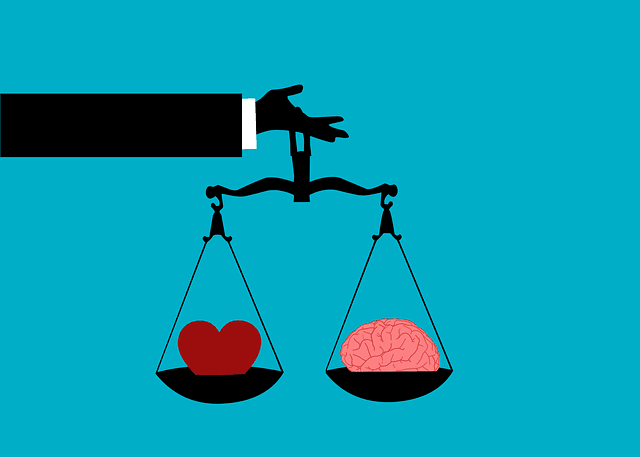Why Stress Costs You Money
By Ann Elliott

Stress is ever-present. We all experience it to some degree or another in all areas of our lives. The World Health Organization defines stress as any type of change that causes physical, emotional, or psychological strain. Stress is your body’s response to anything that requires attention or action. How do you deal with stress? How does your organization deal with stress? This is an important question because your response determines to a considerable extent your overall well-being as well as the organization you lead.
According to the well-known stress inventory developed by psychiatrists, Holmes and Rahe, negative events are not the only source of stress. An outstanding personal achievement, vacation, and a major holiday create stress, too.
While it doesn’t specifically make the Holmes-Rahe scale, implementing new software is a significant change. The result may be long-awaited and needed, the getting there is stressful. The people responsible for using the new technology must learn how to use it. I am reminded of the bookkeeper in a large school district who was introduced to and trained how to use the latest software designed to improve efficiencies and accuracies. Her boss noticed she was putting in an unusual number of hours. This was not the outcome he expected with the conversion to the newer method, so he decided to investigate. To his surprise, his trusted, long-time bookkeeper, was keeping TWO sets of records. She did not trust the new system, so she continued to keep the books manually AND with the new software.
Change occurs. Nothing stays the same in nature, in relationships, in business, you name it. Adapting poorly to change impacts not only you but the people around you. Change is inevitable.
The Myth about the Benefits of Stress:
The root of the problem is that we are led to believe that stress can be a good thing because it motivates us to do something. Stress as a motivator takes you only so far. It serves as an alert to get into action. Acting from fear is not the best elixir for sustained well-being. It does not sustain productivity for the long haul.
For instance, the perennial procrastinator can justify the stress of meeting a deadline as “I work better under pressure.” Other members of the team who rely on the “better under pressure” colleague do not find this a tenable situation.
Working under stress to meet a deadline, makes reaching the deadline more important than quality and accuracy. Errors are more tolerated because of the strain to get it done on time.
For a strain to persist beyond an alarm, it is not beneficial. Physically to keep straining a muscle can cause harm. The “no pain no gain” approach is a myth.
In some workplace cultures, stress and pressure reflect hero status. It is expected for people to be stressed or they are not doing their work. For someone to take time off to relax is considered a weakness, not strong enough to handle the pressure.
Recently a senator checked himself into a hospital for treatment of his depression. He had the courage to buck the “tough it out” system to address his mental health. When you are in a good space mentally, you do better work. You make wiser choices. In his case, he represents his constituents with clarity and purpose because he does not have anxiety running in the background to distract him.
Low-grade stress feels normal because you are accustomed to feeling this way. This may be the most insidious means of keeping us chained to a stressful situation.
How can a business address the stress related to change? The only way for a business to remain viable is to change as the needs of its customers change, as the methods of delivery change, as the economy changes, and as the workforce changes. It requires enormous mental and physical energy to try to avoid change. It is a fool’s errand.
Your bottom line feels the impact of stress in these areas:
- Productivity. People who are sitting on edge cannot give full attention to the work at hand which leads to costly mistakes.
- Illness. People miss work because of stress induced illness.
- Relationships. People create frayed or dysfunctional relationships with others they count on to accomplish important tasks.
Develop a culture of resilience to deal with stress
“Resilience is the ability to bounce back from stress, adversity, failure, challenges, or even trauma.”—Katie Hurley, Psychotherapist
Everything does not always go as planned. We have all experienced a project that goes off the rails. People disappoint us. We have unexpected events such as accidents or illnesses that create challenges.
What does an organization need to have a culture of resilience?
Purpose
Have a clearly defined reason for being so everyone knows why the organization exists. This operates as a guide for decision making.
Values
Know with certainty what the ultimate guide is for employee behavior. Adhering to the core values makes it easier to attract the right employee and dismiss the wrong ones.
Relationships
Build connections both internally and externally that are respectful and supportive. Success depends on interdependence.
Adapt to change
Develop the habit of looking for the gift or opportunity in any situation. Adopt a curious attitude about the circumstances and use creative thinking to choose the next steps.
You are more resilient than you think you are
Consider a time when your company or you addressed a major change which induced stress. How did you deal with it? The fact that you are reading this indicates you survived. You are more resilient than you give yourself credit for being. If you have been a caregiver or managed the care for someone in the late stages of Alzheimer’s disease, for example, you know the meaning of stress. In my experience, not only are you learning how to deal with a healthcare system but also the emotional toll of watching someone you love to deteriorate right before your eyes. In my journey, I realized I would need the help of others who are experts in their field—medical professionals, financial experts, community resources, government agencies, attorneys, real estate agents, and family. A significant awareness for me was others were also dealing with their own challenges even though I may not know about them. Kindness and compassion for yourself and others are always winning strategies to develop resilience to manage stress.
The Bottom Line
In his book Great by Choice, Jim Collins reminds us that luck happens. With a culture of resilience, your organization is positioned either to take advantage of good luck or to overcome the consequences of bad luck. Both events create change which is the underlying cause of stress.
Change is constant. The way you deal with stress is an inside job. What are you and your organization doing to develop your mental fitness to develop resilience?
Share this resource




